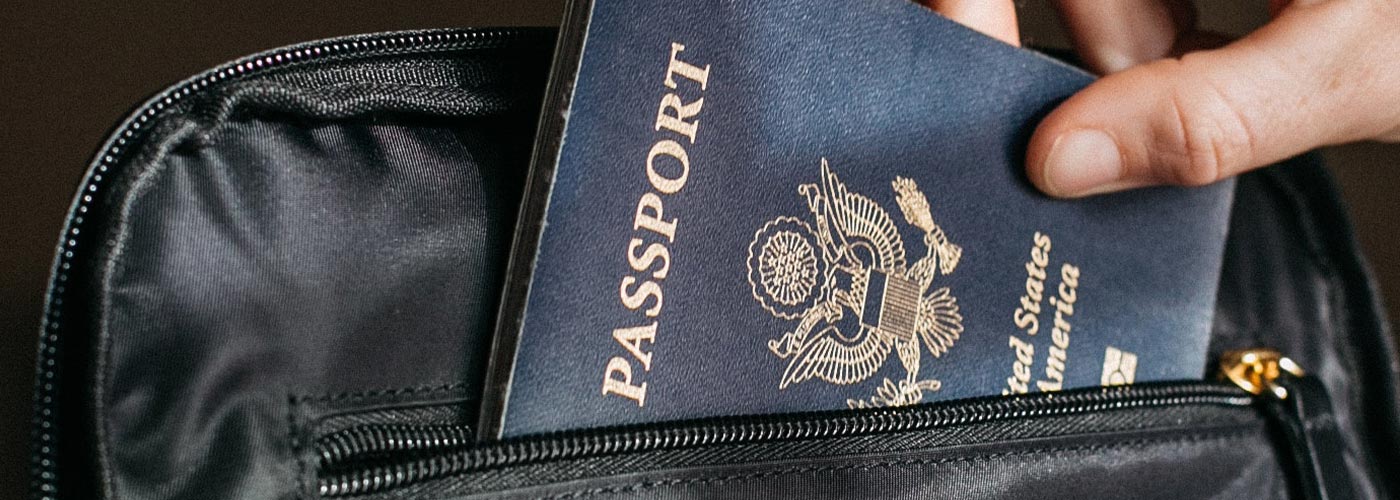In 2015, the U.S. was ranked No. 1. Top of the heap. The best in the world.
Then it started to slide…
In 2016 and 2017, it was No. 3. In the two years after that, it fell to fifth and sixth, respectively. Now, it’s seventh. You can see the pattern.

The ranking I’m talking about here is the Henley Passport Index, a measure of how powerful a country’s travel document is.
The index is based on how many other countries provide visa-free access to citizens with a certain passport.
This was once a game dominated by the U.S.
For decades after World War II, a U.S. passport was a golden ticket, allowing privileged access to countries across the globe. Now, not so much.
In recent years, the U.S. has been falling behind, particularly when you consider that multiple countries can occupy one place in the Henley index.
In the most recent version, which you can see in this table, sixth place is occupied by five European countries: France, Ireland, the Netherlands, Sweden, and Portugal.
So in fact, 15 countries’ passports are currently ranked higher than Uncle Sam’s.
You also need to note that the Henley index does not factor in COVID-related travel restrictions, which have locked Americans out of many parts of Europe.
Clearly, the U.S. passport is not what it once was.
I point all this out not to denigrate the U.S. in any way. I love my homeland. Always will.
I’m merely highlighting that other countries have less love for Uncle Sam than they used to. Which means if you enjoy having the freedom to travel visa-free and live abroad, it pays to have a second passport.
Second citizenship and second passports are common around the world, particularly in Europe where I live.
But in the U.S., they seem to have a bad rap. People think they’re somehow illicit or underhanded or unpatriotic. In fact, they are none of those things.
Having a second passport and second citizenship is completely legal under U.S. law. It’s your right. All sorts of Americans get second passports to increase their travel, investment, overseas residency, and tax options. Just last year, for instance, Tom Hanks and his family became Greek citizens.
Getting a second passport is one of my primary motivations for moving to Prague. To date, I’ve been here two and a half years. After another two and a half, I’ll be able to apply for a Czech passport, which is an EU passport. That means I can use it to live and work anywhere in the EU.
Ireland, Germany, Spain, France, Italy, Portugal, Greece…I’ll be able to travel, live, and work in any of these countries and more whenever I want, for as long as I want, once I get my Czech passport.
In other words, a second passport is freedom. It opens more doors for you than you might imagine. And here’s the thing, you might be eligible to get one…right now.
There are several pathways to obtaining a second passport. The easiest is through ancestry.
If one of your parents, one or both grandparents, or one or both great-grandparents were born overseas, you could be able to apply for second citizenship in their country of birth.
Countries that offer citizenship this way include some of the world’s most desirable destinations, including Germany, Italy, and Ireland. In fact, in Italy, you can actually apply if your great-great-grandfather was Italian.

Don’t worry. Even if you don’t have any ancestral ties to draw on, there are other paths to second citizenship and a second passport.
One is the route I’m taking: living abroad.
This is also called citizenship by naturalization. Many countries will allow you to apply for citizenship, and the second passport that comes with it, once you’ve been residing there for a certain number of years.
The number of years depends on the place. Some nations, including Argentina and Peru, will allow you to apply after just two years. Many destinations are five, including Ireland, France, Australia, the U.K., and my adopted home, the Czech Republic. Some are even longer, up to eight or 10 years. Meanwhile, others such as Japan will only give you a second passport if you give up your U.S. citizenship.
However, if you want to live abroad, choosing a country that will happily accept you as a citizen (while allowing you to maintain your ties to Uncle Sam) can be a surefire path to getting that coveted second passport.
If the last 12 months proved anything, it’s that we cannot know what tomorrow will bring. Borders can be closed and U.S. citizens can be locked out of traveling to countries that normally welcome us with open arms.
In a world like this, I want options. And a second passport is the ultimate insurance policy.
To me, it is an essential tool. I’m counting down the days till I can apply for mine. I encourage you to investigate your second passport options.
There may be one waiting for you.

